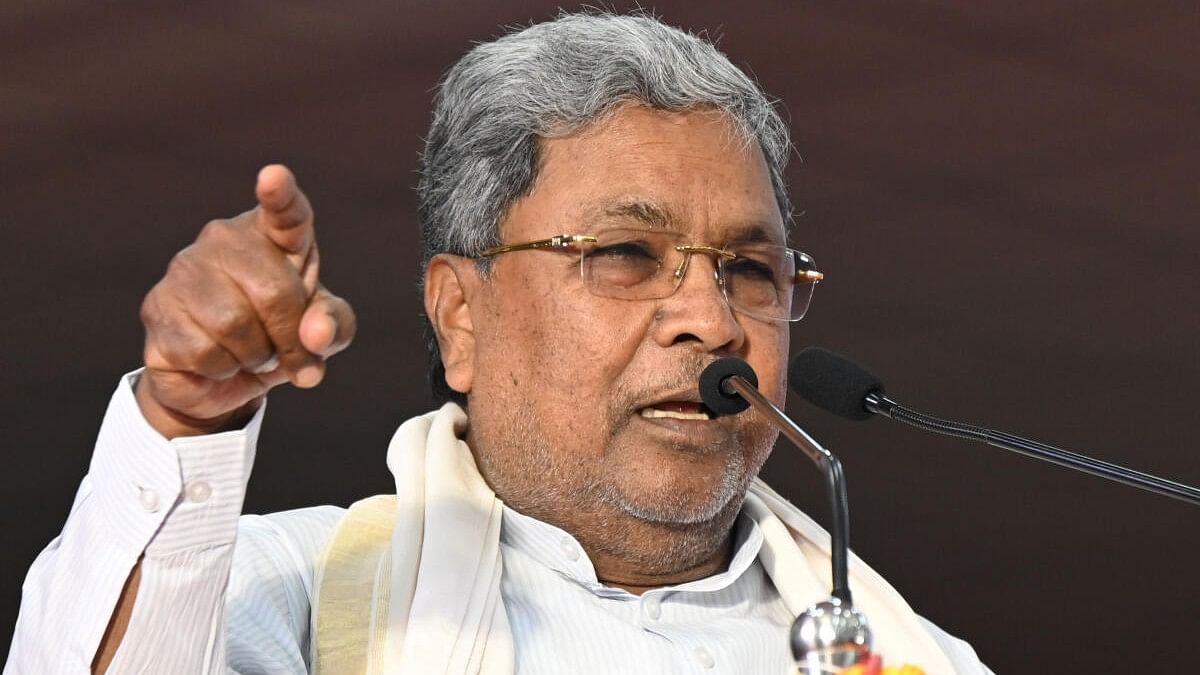
Karnataka Chief Minister Siddaramaiah.
Credit: DH Photo
Bengaluru: Karnataka Chief Minister Siddaramaiah on Tuesday said his government will bring back a law that barred non-agriculturists from purchasing farmlands, a big-ticket reform the previous BJP regime had introduced to liberalise landholdings.
Siddaramaiah said this at an event to commemorate former chief minister D Devaraj Urs on his 109th birth anniversary.
"I am waiting for (Congress) to get a majority in the Legislative Council. Once that happens, definitely we will restore Sections 79A and B of the Karnataka Land Reforms Act," Siddaramaiah said.
It was Urs who amended the land reforms law to end "atrocities" by landholders, Siddaramaiah pointed out.
"Urs said that land should belong to the tiller. But what's happening today? Forget tillers, anyone can buy land now. Those who've never held a plow can purchase land. And, we're tolerating this," he said. "Who did that? It was those with vested interests who are against social change," he said.
In the 75-member Legislative Council, Congress holds 35 seats, three short of a simple majority.
In 2020, the BJP government amended the Karnataka Land Reforms Act and omitted Sections 79 A, B and C, thereby allowing even non-agriculturists to purchase and own farm lands.
Section 79A barred a person (or a family) with an annual non-agricultural income of Rs 25 lakh from acquiring agricultural land. Section 79B specified that only a person cultivating land personally could hold agricultural land. Section 79C prescribed penalties for falsely claiming eligibility to hold agricultural land.
The then BJP government argued that the provisions had outlived their utility and were leading to corruption.
As Leader of the Opposition, Siddaramaiah had described the move as “a scam bigger than illegal mining” and claimed that farm lands worth Rs 50,000 crore would be lost.
Earlier this year, Siddaramaiah had assured farmers that the Karnataka Land Reforms Act would amended as what the BJP had done was "anti-farmer".
Siddaramaiah is expected to meet resistance from his party colleagues, most of whom are in favour of keeping agricultural landholdings liberalised.